Panelists - HDP Conference
Abdourahmane Sow
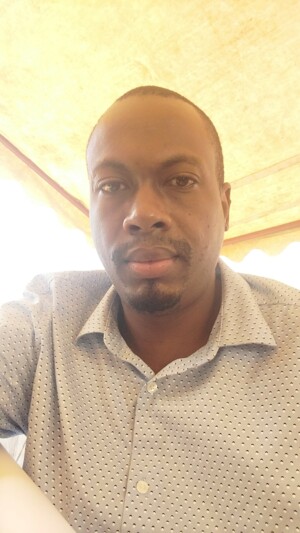
Abdourahmane Sow is a Guinean graduate with a Master's degree in water and environment/business management. He works as a governance and rights coordinator for International Rescue Committee (IRC) in Mali, which he describes as a dynamic working environment. His favourite part of the job is participating in community activities, meeting decision-makers and community members to learn about the context of their areas and the steps they are taking at the local level to overcome their challenges.
Althea-Maria Rivas
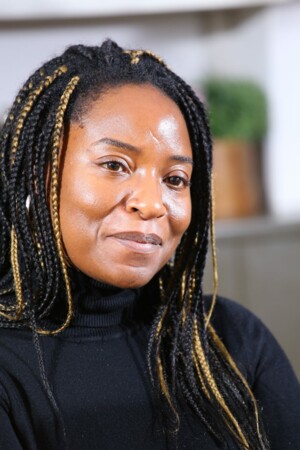
Althea-Maria Rivas is a Senior Lecturer (Associate Professor) in Development Studies, at SOAS, University of London. Her research focuses on the politics of development, conflict, humanitarian intervention and peace, specifically the racialised and gendered nature of aid, post-conflict reconstruction and transitional justice. Before beginning her academic career Althea-Maria worked for 12 years in diplomacy, development, and humanitarian assistance, with various local and international organisations in Africa, Asia, the Caribbean and the Middle East.
Relevant publication:
Birgit Kemmerling
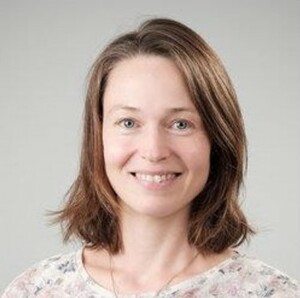
Birgit is a researcher at BICC. She has a PhD in human geography and several years of professional experience in humanitarian aid. For the past fifteen years, she has been researching and working on various countries in the MENA region and sub-Saharan Africa, mainly on food (in)security and sustainable resource management.
She joined BICC in November 2019 as a senior researcher for a project on sustainable transformation processes in rural Morocco (I-WALAMAR). For three years, she explored the socio-economic sustainability and potential risks of introducing new technologies and agricultural practices that aim for introducing a circular economy in the olive oil industry in Meknès, Morocco. The project brough her back to Morocco after more than a decade, where she conducted research for her Master thesis on the potentials for a “sustainable range management of a pastoral-nomadic group in the High Atlas Mountains of Morocco”. After that, she lived and conducted research in Egypt for several years for her PhD on the governance of water in Egypt’s agricultural sector and its impact on socio-spaces, with a focus on the role of the international development cooperation.
She has also worked in the humanitarian department at Caritas Germany in Freiburg for more than three years, where she coordinated emergency and transitional aid projects in South Sudan and other countries in sub-Saharan Africa. Building on this practical experience, She is currently part of a research project at BICC on how the links between humanitarian assistance, development cooperation and peacebuilding (HDP nexus) can be improved. For this project, she conducts research in three localities in South Sudan. Besides that, she is working on the links between current food crises and violent conflict.
Her research topics are: Human-environmental relations, political ecology, and theories of space; Rural transformations and agricultural development; Natural resources management and governance of resources; Food insecurity and violent conflict; HDP Nexus and humanitarian assistance; Qualitative research methods.
Boubacar Haidara
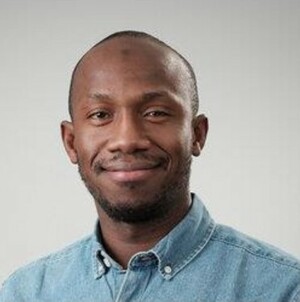
Boubacar is a researcher at BICC. Before joining BICC, Boubacar Haidara taught at the Faculty of Social Sciences at the University of Ségou (Mali) (2018-2022). He has also carried out a number of research missions for several institutions: World Bank Group, Dutch Ministry of Foreign Affairs, The Clingendael Institute, etc.
Boubacar holds a PhD in political science & political geography, University Bordeaux Montaigne and laboratory ‘’Les Afriques dans le Monde’’ (LAM), Institute of Political Studies of Bordeaux, France (2015), a Master’s in International Management, Paris School of Tourism & Communication, Paris, France (2012) and a Master’s in Geopolitics, University of Paris Sorbonne-Paris 4, Paris, France (2010). He did his Bachelor's in Humanities and Social Sciences at the University of Clermont-Ferrand II, France, in 2008.
His research topics are: Islamism and Jihadism; Crises and stabilisation processes; Peace and security; Inter-community conflicts; History of Islam in Africa; Sociology of religion; Islam and politics; Islamic movements.
Conrad Schetter
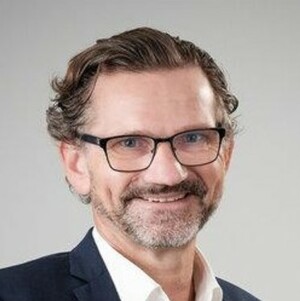
Conrad Schetter studied geography, history, education, Persian and Indonesian at the University of Bonn. From 1999 to 2013, he worked at the Center for Development Research (ZEF) at the University of Bonn, where he most held the position of Acting Director. Since 2013, Conrad Schetter has been the Director of the Bonn International Centre for Conflict Studies. He started his academic career with studies on the impact of ethnicity on violent conflicts. Then, his research focused on themes such as politics of interventions, spaces of violence (e.g. ungoverned spaces, frontiers), development, humanitarian aid and conflict, Jihadi movements (e.g. Taliban) and forced migration. Conrad Schetter has given advice to German ministries as well as to GOs and NGOs. Among others he is member of the presidency of Welthungerhilfe and of the Board of Trustees of IDOS as well as member of the Advisory Boards of DSF and SEF.
His research topics are: Politics of Intervention; Spaces of violence; Development, humanitarian aid and conflict; Ethnicity and ethnic conflicts; Jihadi movements; Forced migration.
Demba Karagnara
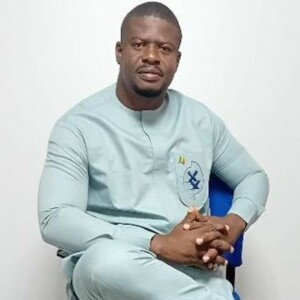
Demba Karagnara is project leader with Welthungerhilfe (WHH) of the project “Resilience of host communities and IDPs affected by armed conflict and intercommunal violence” in central Mali, funded by the German Federal Ministry for Economic Cooperation and Development (BMZ). Since 2017, he has been working with the NGO Welthungerhilfe (WHH) in the north and centre of the country. Demba is a geographer by training, specialising in local and territorial development planning and management, disaster risk management, and conflict prevention and management based on local conflict resolution mechanisms. He has coordinated several World Bank studies in Mali. In particular, he has worked on the role of "joking relationships" in the prevention and management of land-related conflicts.
Study on land transfer systems in West Africa that Demba coordinated
Edmore Mahlupeka
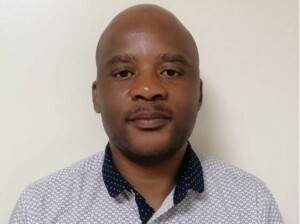
Edmore Mahlupeka, Governance and Rights Coordinator in South Sudan for the International Rescue Committee (IRC), is an expert and practitioner in conflict prevention, mitigation and response, as well as violence reduction, protection and rule of law in fragile states. He has led USG, SIDA and EU-funded projects in Zimbabwe and South Sudan for over a decade. The most recent projects used a people-to-people approach to work with conflict-affected communities in Unity State, South Sudan. He will share his experiences and lessons learned from the project in strengthening linkages between H-D-P in South Sudan.
Emad al Qasm
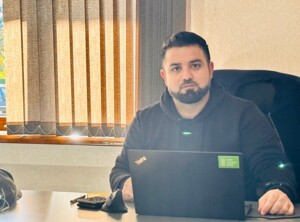
Emad Al-Qasm is a humanitarian aid worker who works for Welthungerhilfe (WHH) as a project manager for livelihoods and economic recovery, formerly in Iraq and now in Ukraine. He holds a bachelor's degree in civil engineering and a master's degree in international management. He joined the humanitarian sector in 2014 to respond to the ISIS crisis in Iraq during the ISIS attack and the Yazidi genocide in Sinjar. Humanitarian workers helped him recover from the genocide, and since then he has decided to help other people affected by the conflict and bring life to them.
Esther Meininghaus
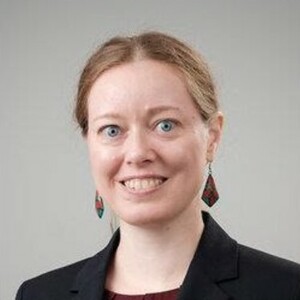
Esther is a researcher at BICC. After completing her PhD in Middle Eastern Studies at the University of Manchester (2013), Esther taught at the University of Manchester before joining BICC as a Senior Researcher in 2016. She also teaches as an associate lecturer at the University of Bonn. Esther is currently heading the project “How can the HDP nexus succeed? NGOs between humanitarian aid, development and peacebuilding”. The focus of her current research lies on local concepts of conflict, conflict resolution, reconciliation and peace and the question as to how these concepts differ from Global Northern understandings of these terms.
Her research topics are: Local concepts; epistemology; anthropology; peace negotiations; HDP nexus; decoloniality.
Henriette Sachse
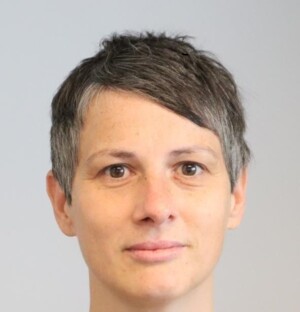
Henriette Sachse is a senior policy advisor e.g. for Near and Middle East and for Economic Cooperations working at BMZ (German Federal Ministry for Economic Coopertation and Development) since 2008. Since 2018 she is Deputy Head of Division for Transitional Development Assistance. Before working at BMZ she was policy advisor for an MoP regarding Development Policy at the German Parliament from 2002-2008. By training at Passau University, Humboldt University of Berlin and Yogyakarta Institut of the Arts/Indonesia she is South East Asia Specialist.
Leigh Mayhew

Leigh Mayhew is a Research Officer with ODI, London, in the Global Risks and Resilience programme, and a fellow at The Centre on Armed Groups. His research focuses on armed group dynamics in the Sahel; illicit economies and development; smuggling networks and the intersection with armed conflict; radicalisation; and the security dimensions of climate change. Currently, Leigh’s work is focused on how communities engage armed actors to advance community self-protection. Leigh is part of the Supporting Pastoralism and Agriculture in Recurrent and Protracted Crises (SPARC) programme. He holds a Masters in Conflict, Security and Development from King’s College London.
Weblink to project “Community engagement, protection and peace” that relates to the HDP nexus, and publications:
https://odi.org/en/about/our-work/community-engagement-protection-and-peacebuilding/
Maria Grosz-Ngaté
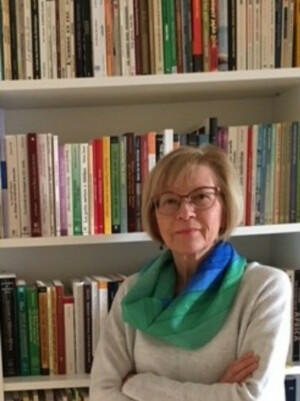
Maria Grosz-Ngaté is a visiting scholar-research scientist in the Indiana University African Studies Program (ASP) and an associate editor of Africa Today. She was the ASP’s associate director from 2001-2017. Her research and publications focus on knowledge production in/on Africa, migration, gender, and the history of Muslim communities in Mali and Senegal. She served as president of the African Studies Association-USA from 2018-2019. Her Presidential Lecture “Knowledge and Power: Perspectives on the Production and Decolonization of African/ist Knowledges” was published in the African Studies Review 63 (4): 689-718, December 2020.
Marie Müller-Koné
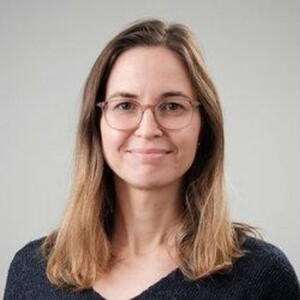
In her position as researcher with BICC, Marie’s research interests have shifted from grievances in the context of large-scale and small-scale mining and oil extraction projects in Africa to the politics of land, human-nature-relations and socioecological transformation more broadly. Before she joined BICC's HDP Nexus project as internal coordinator in April 2023, she led a study on food security and conflict in northern Kenya.
Her research topics are: Resource conflicts; global resource governance; ethnicization of land conflicts; human-nature-relations; development-induced displacement.
Raan Clement

Raan is a results-oriented South Sudanese professional who has spent the last 15 years working for various international organisations in the fields of peacebuilding, conflict mitigation, civil society capacity building, democracy & governance, and monitoring & evaluation. Over the years, he has worked with a network of key stakeholders in aid delivery, including community leaders, civil society organisations, youth groups, women's groups and government institutions at both policy and operational levels. He currently works for the Conflict Sensitivity Resource Facility (CSRF), Juba, South Sudan, as Outreach and Learning Manager. Raan is passionate about effective leadership and considers himself a lifelong student of leadership.
Ralf Südhoff
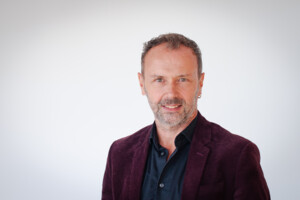
Ralf Südhoff has been founding director of the Centre for Humanitarian Action (CHA) since January 2019. He heads the research project on linking German and European policy capacities and published on the Humanitarian-Development-Peace-Nexus in the context of the CHA project “The Triple Nexus in Practice”. Before joining CHA, Ralf was Director of the UN World Food Programme (WFP) Regional Bureau for the Syria Crisis in Amman and the WFP Office in Berlin for Germany, Austria, Switzerland and Liechtenstein for almost 10 years. In addition, Ralf was Head of External Relations of the World Health Organisation (WHO) in Bonn and advisor to Ms Uschi Eid, State Secretary in the Federal Ministry for Economic Cooperation and Development. He has been member of the Oxfam Germany board for about 20 years.
Riyadh Al-Khadhra

Riyadh Al-Khadhra is a Senior Governance Manager at the International Rescue Committee (IRC), brings over nine years of experience in aiding internally displaced and conflict-affected individuals in Iraq. In his role at the IRC, he manages and leads a consortium focusing on social cohesion and livelihood in collaboration with three NGOs throughout Iraq.
Expertise in post-conflict stabilization and development interventions, particularly in community-based protection, governance, conflict resolution, peacebuilding, legal empowerment, access to justice, and women's empowerment. Riyadh possesses extensive experience working with civil society organizations, local authorities, and community-based structures with a strong program and project management background.
Ruba Ali al Hassani
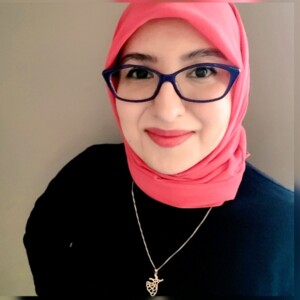
Ruba Ali Al-Hassani is a Postdoctoral Research Fellow at Lancaster University’s Department of Politics, Philosophy & Religion, and a Research Consultant with King's College London. As an interdisciplinary sociologist, she focuses on state-society relations & social movements in Iraq, law & social control, and transitional justice & mental health. She co-founded the Canadian Association for Muslim Women in Law and the Iraqi Women Academics Network, and has taught at York University and Trent University, Canada. Ruba holds a B.Sc. in Psychology & Sociology, a M.A. in Criminology, an LL.M. in transitional justice, and a forthcoming PhD in Law.
Simaya Ladu James
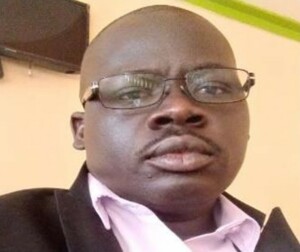
Simaya Ladu James Kenyi is a South Sudanese Masters graduate in Public Health and Project Management. He is currently working as a Project Manager with Malteser International (MI) in Yei, South Sudan. He has more than 12 years of work experience in both humanitarian and development contexts in the areas of WASH, Health, FSL and Peacebuilding with various international humanitarian organisations such as Samaritan purse, International relief, Cordaid, Goal and Help.


